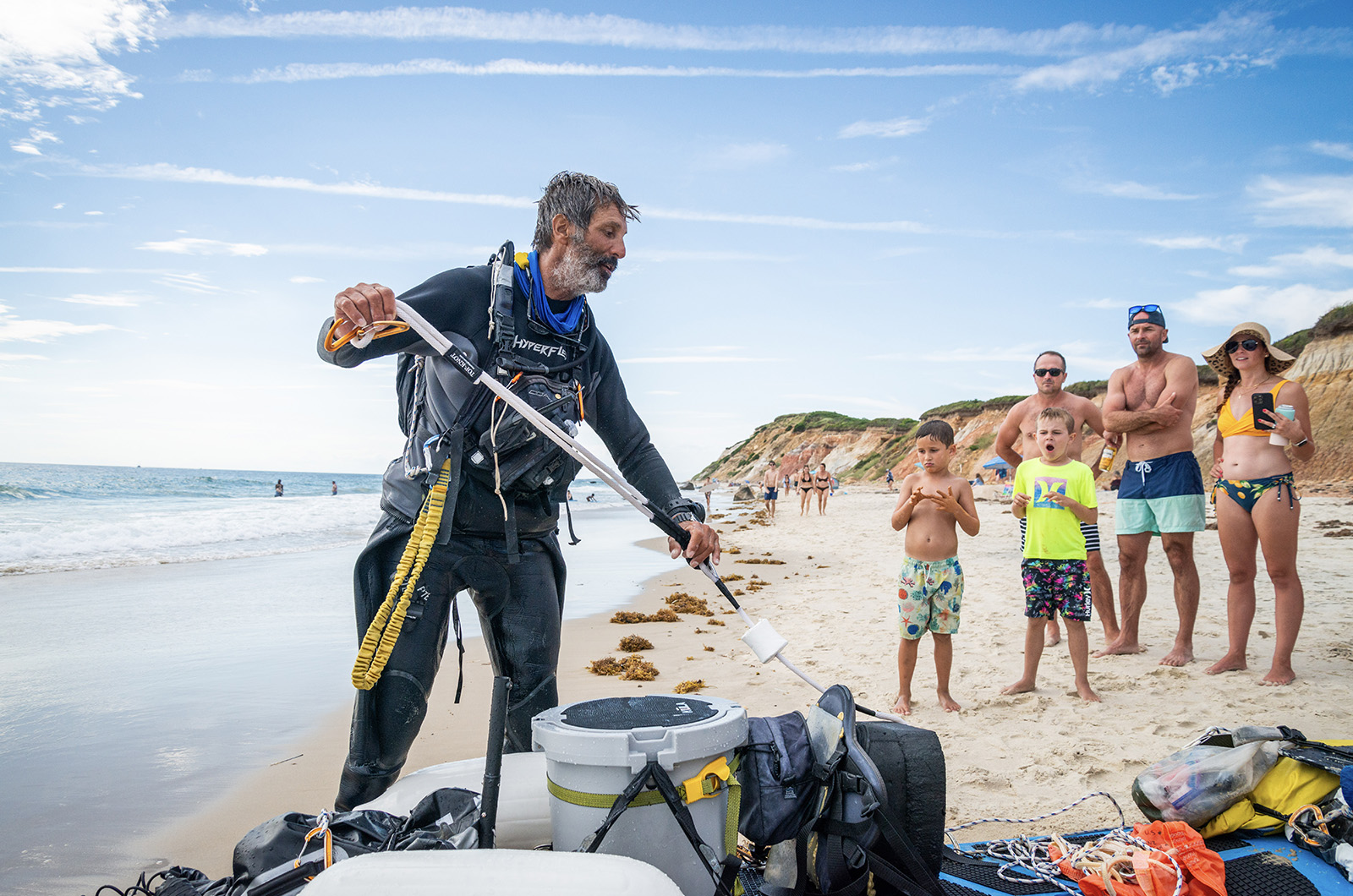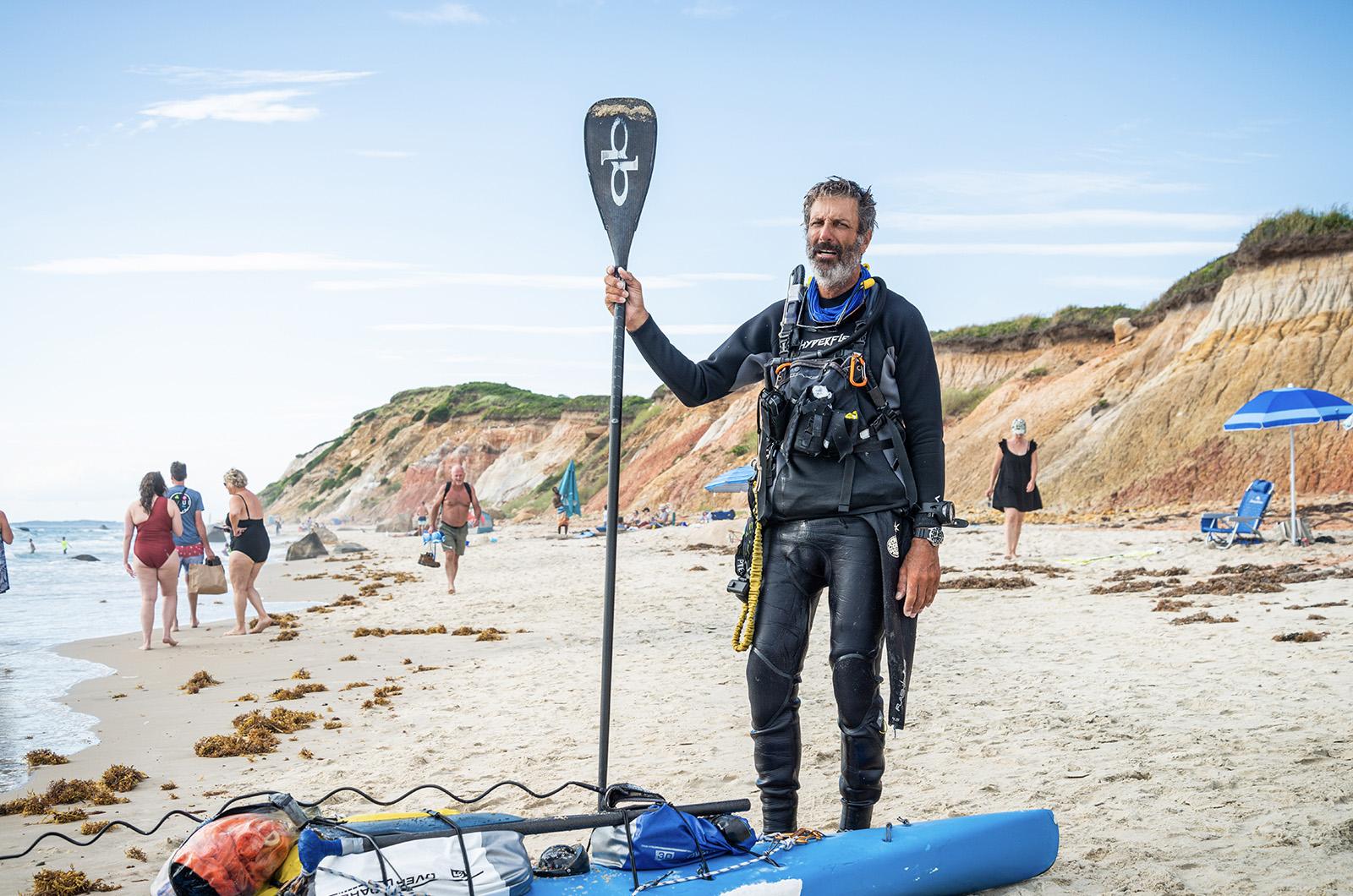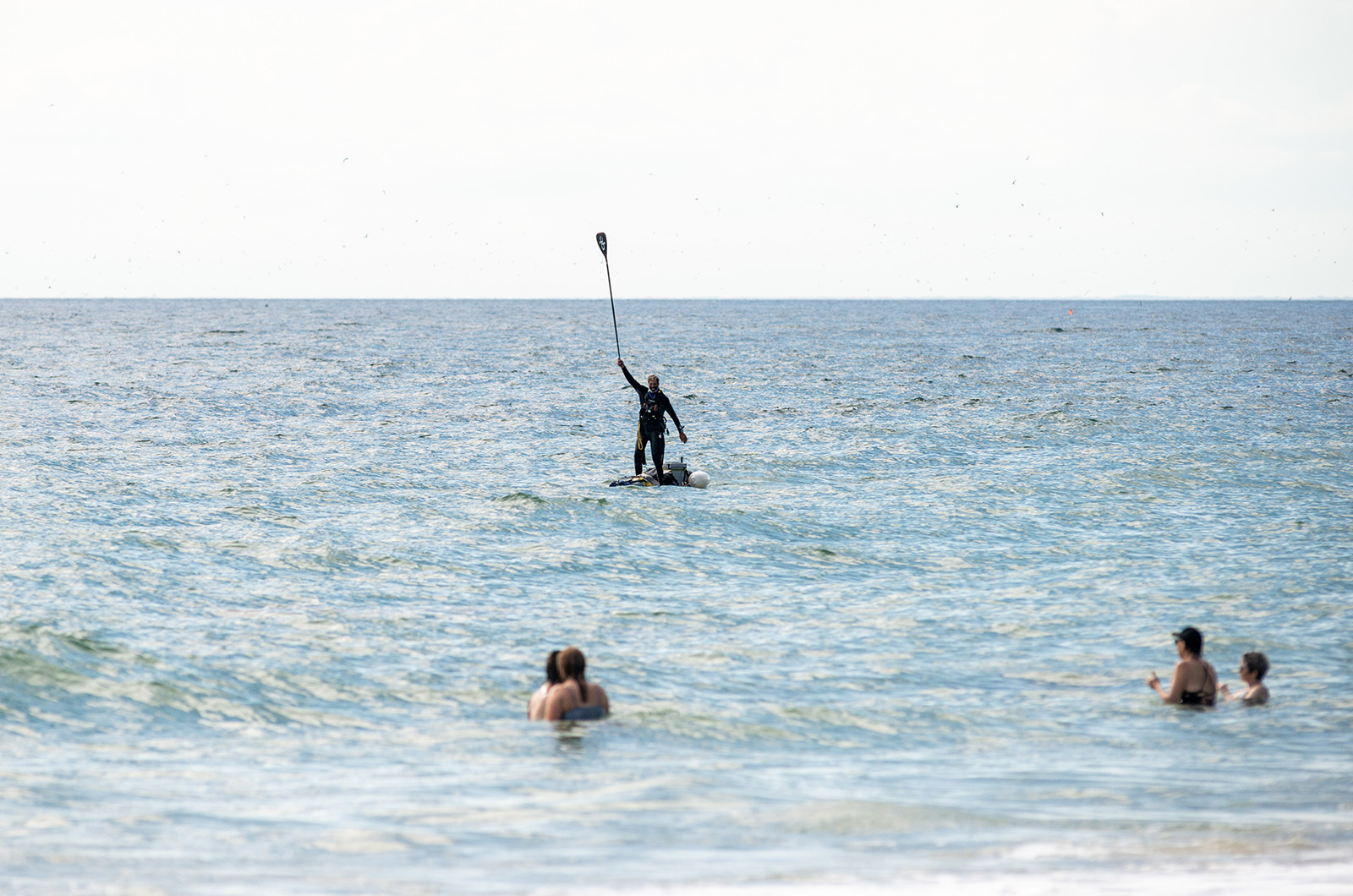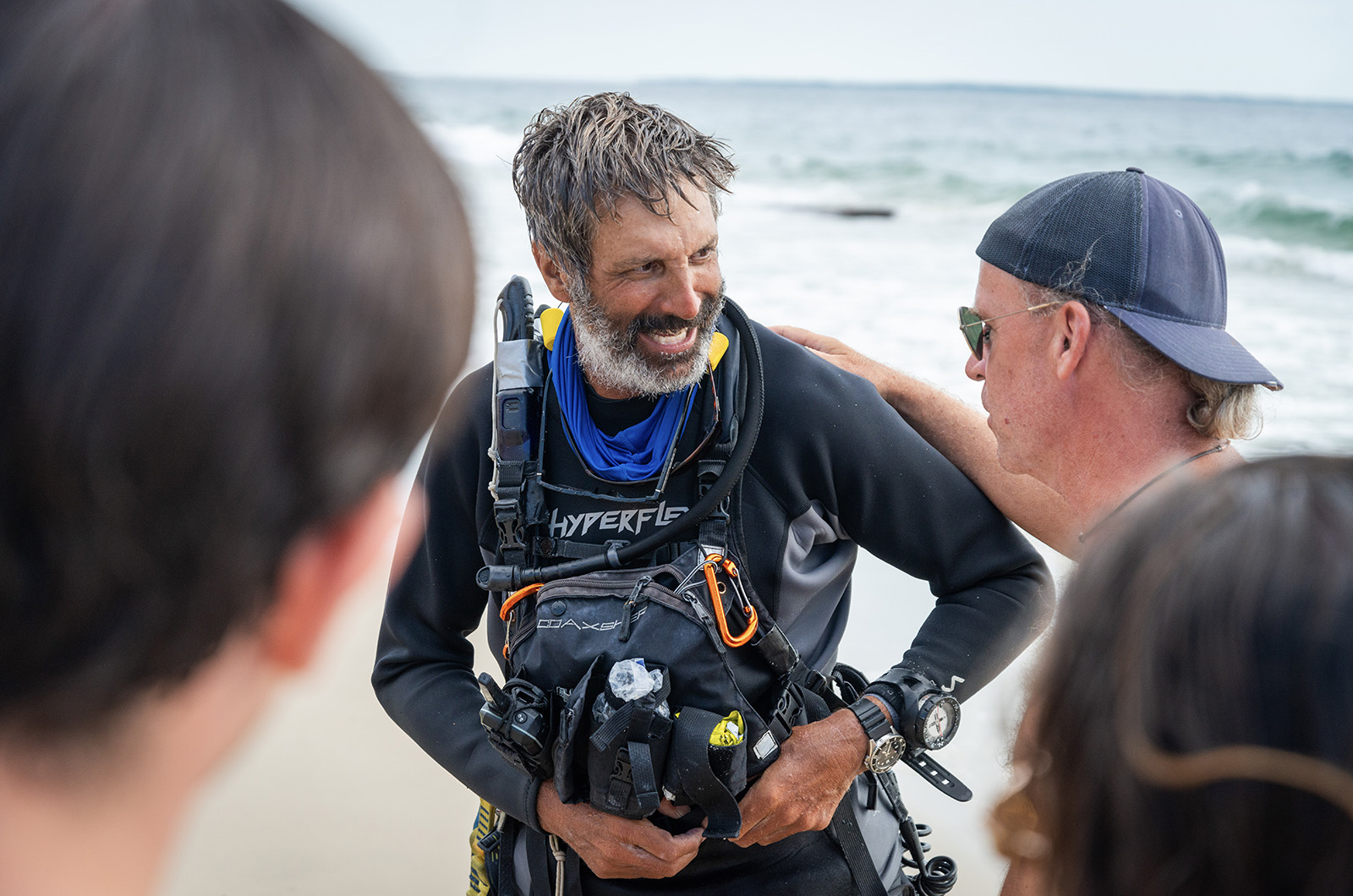Adam Nagler never had an easy landing on Martha’s Vineyard.
An endurance athlete with 3,500 miles of charity paddleboarding under his belt, he has landed on-Island three times before, each one more challenging than the last. Last year, for instance, he arrived at Squibnocket Beach after 30 hours of paddling, experiencing heavy hallucinations.
“The cliffs were speaking in tongues, singing Gregorian chants,” he recalled. “I was wrecked, the beach break was big.”
But this year, on his fourth landing, he was greeted by calm waters and welcoming friends Monday at Moshup Beach. After 750 miles of paddling up the East Coast, it felt like a homecoming.
“This is the first time I came in and it was sandy, I couldn’t believe it,” he said.
The arrival on-Island commences the final leg of Mr. Nagler’s “Wicked 1,000” journey to raise money for mental health services Martha’s Vineyard Community Services. He’s paddled from South Carolina to the Vineyard, and will soon embark for Montauk.
With 250 miles left on the journey, Mr. Nagler has raised $29,000 for MVCS thus far.
“Adam is such an inspiration,” said Beth Folcarelli, executive director of Community Services. Ms. Folcarelli said she and her staff were able to meet Mr. Nagler in person for the first time at an on-Island reception Wednesday.
“He shared a lot about his inspirational journeys and reenergized us,'' she said. “The de-stigmatization of mental illness is really key for him.”
Mr. Nagler has lost 35 pounds since the beginning of the trip in late June. In an interview with the Gazette this week, he was gaunt and deeply tanned from months out on the open water.

“My shirt is not quite dry yet,” he said the day after his Moshup landing.
This most recent journey – part of a series of endurance paddling challenges to raise money for mental health services organizations – is on the “edge of difficulty” for what is possible, Mr. Nagler said.
“Some of these are the hardest crossings ever done,” he said. “I’m not going to say the longest journey, but the most complex.”
When undertaking a trip of such scale and complexity, he said, preparation is just as important as execution.
All the materials needed between stops on the 1,000-mile journey have to be secured on his 14-foot paddleboard, with water tanks arranged carefully at all four corners to maintain balance. Repair equipment are perhaps the most essential items, especially for Mr. Nagler’s aging board.
Built in 2014, the paddleboard has had something like 300 hours of repair work by now.
“I’m getting ready to retire it,” he said.
With a fully loaded board, getting to sleep on his multi-day sojourns can also be a challenge. Seasickness induced by water turbulence doesn’t help either.
When Mr. Nagler is ready to catch a few winks on the water, he throws out his stabilizing anchors, ensures he is clipped onto the board, bundles up in a safety blanket and elevates his legs on his pack. After paddling for days straight, Mr. Nagler said he usually wears himself out enough to sleep even in truly adverse conditions.
“If you are tired enough, you will get to sleep,” he said.
It is not only natural factors that make the journey difficult, but also human ones. Between New Jersey and Long Island, New York, Mr. Nagler passed through the busiest commercial traffic corridor on the east coast, with six lanes of boat traffic and another four for barges.
Later, when paddling through the offshore wind farm south of Block Island, he recalls being pursued for hours by a U.S. Coast Guard helicopter that thought he was in danger, before being approached by a fishing vessel to check in on him.
Mr. Nagler explained to the fishermen his mission, and they struck up a conversation.
“They said, ‘you’re pretty wacky, huh,” and I was like “yes, but I feel good,’” he said.
The challenges Mr. Nagler faces when interacting with other people, with the “obscurities of human behavior” on land and sea, is part of what inspired him to undertake the journey. While he has developed the skills required to paddle thousands of miles in harsh Atlantic waters, he said he still struggles with the challenges of managing interpersonal relationships.
“That’s where it breaks down for me, that’s where I need therapy,” he said.
In addition to providing concrete support for those mental health services, Mr. Nagler says he hopes to bring back lessons from the sea to better cope with those day-to-day challenges, to be better able to weather the “emotional journey of life on land.”
Donations to Mr. Nagler’s journey can be made at: mvcommunityservices.org/wicked-1000.









Comments (1)
Comments
Comment policy »